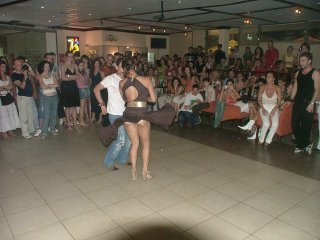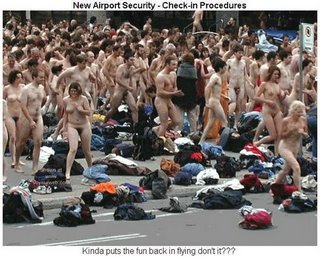

Lebanese PM rejects U.N. cease-fire plan
By ZEINA KARAM, Associated Press Writer BEIRUT, Lebanon -
Lebanon's government rejected a U.N. cease-fire plan backed by
President Bush on Monday, demanding immediately withdraw even before a peacekeeping force arrives and promising to send 15,000 troops to take control of the Hezbollah stronghold along the border.
Meanwhile, renewed clashes broke out early Tuesday between Hezbollah guerrillas and Israeli forces near the Lebanon-Israel border. Fifteen guerrillas were killed, along with one Israeli soldier, in fighting in the town of Bint Jbail, the army said.
Hezbollah's television station, Al-Manar, claimed the guerillas had inflicted casualties on Israeli forces near the city of Naqoura. It did not mention the fighting at Bint Jbail.
Prime Minister Fuad Saniora's stand, delivered in a tearful speech to Arab foreign ministers, came on a day in which 49 Lebanese were killed — one of the deadliest days for Lebanese in nearly four weeks of fighting. The rejection, ratified by the Cabinet, complicated efforts to find a speedy diplomatic solution to the deadly conflict.
Saniora's Cabinet, which includes two Hezbollah ministers, voted unanimously to send 15,000 troops to stand between Israel and Hezbollah should a cease-fire take hold and Israeli forces withdraw south of the border. The move was an attempt to show that Lebanon has the will and ability to assert control over its south, which is run by Hezbollah, the powerful Shiite Muslim militia backed by and Iran
In Texas, Bush said any cease-fire must prevent Hezbollah from strengthening its grip in southern Lebanon, asserting "it's time to address root causes of problems." He urged the
United Nations to work quickly to approve the U.S.-French draft resolution to stop the hostilities.
Clashes between Israel and Hezbollah have sharply intensified in recent days as cease-fire diplomacy gains traction after nearly a month of unproductive talks. The cease-fire plan now under scrutiny at the United Nations has drawn only lukewarm support in Israel and vilification in the Arab world. Neither Israel nor Hezbollah has found an incentive to stop fighting, and both may be trying to gain advantage on the ground before a cease-fire.
At least 52 people died Monday on both sides. Hezbollah fired 160 rockets, wounding five Israelis, police and rescue services said. Three Israeli soldiers were killed in combat in south Lebanon, the first in an exchange of fire with Hezbollah fighters and the two others by an anti-tank missile, the Israeli army said.
With Arab League foreign ministers assembled around a horseshoe table, the embattled Lebanese leader repeatedly interrupted his opening address to gather his composure and wipe away tears. The foreign ministers cast their eyes downward in apparent embarrassment.
But Saniora's impassioned appeal did not change minds in Israel, where hospitals in the war zone were working around the clock and under rocket fire to protect patients from harm — in some cases moving them into a basement. The defense minister threatened an expanded ground operation if diplomacy does not produce results soon.
"I gave an order that, if within the coming days the diplomatic process does not reach a conclusion, Israeli forces will carry out the operations necessary to take control of rocket launching sites wherever they are," Israeli Defense Minister Amir Peretz said.
Cabinet minister Tzahi Hanegbi dismissed the Lebanese offer to send troops as "a ploy."
"We know the army of Lebanon," Hanegbi told Israel Army Radio on Tuesday. "It is a virtual army and was never tested in real conflict. It (the proposal) is a ploy to stop growing pressure on Hezbollah."
But Israeli Foreign Ministry spokesman Mark Regev told CNN a Lebanese army deployment in the south "in principle, is something, of course, we embrace and we support." He said, however, that Israel wants to know "the rules of engagement" and whether this means the Lebanese army is finally going to start disarming Hezbollah.
Lebanon has been unable for nearly two years to implement a previous U.N. resolution calling for disarmament of the Shiite militants.
The new U.N. resolution under consideration calls for "a full cessation of hostilities" based on "the immediate cessation by Hezbollah of all attacks and the immediate cessation by Israel of all offensive military operations."But it makes no explicit mention of an Israeli withdrawal, and implicitly allows Israeli defensive operations. Instead, it calls in the longer-term for a buffer zone in southern Lebanon — which Hezbollah controls and where Israeli troops are now fighting. Only Lebanese armed forces and U.N.-mandated international troops would be allowed in the zone.
France's U.N. ambassador, Jean-Marc de La Sabliere, promised Monday to take into account Lebanon's concerns that the resolution does not seek the withdrawal of Israeli troops. But he did not say whether France was prepared to add such language to the text.
The Arab foreign ministers announced in Beirut they would send a delegation to the U.N. to represent Lebanon's interests at a meeting with the Security Council on Tuesday.
They will demand major changes in the draft resolution including a call for Israeli forces to pull out of Lebanon once the fighting stops and hand over their positions to U.N. peacekeepers. Arab states also want the U.N. to take control of the disputed Chebaa Farms area, which Israel seized in 1967.
"We need today pressure on the international community for a Security Council resolution that imposes a comprehensive and permanent cease-fire that provides simultaneously for a complete Israeli withdrawal," Saniora said at the hastily arranged Arab League gathering in Beirut.
Washington and Paris had been expected to circulate a new draft later Monday, in response to amendments proposed by Qatar, the only Arab nation on the Security Council, and other members, diplomats said. But they decided to wait to hear from the Arab delegation on Tuesday afternoon.
The timing of the meeting means the council probably would not adopt a resolution until Wednesday at the earliest but some diplomats were guessing it would be put off until Thursday.
Saniora said Lebanon was "stunned" by the devastation of the Israeli offensive, which had taken "our country back decades. We are still in the middle of the shock."
Israel, reeling from 15 deaths in Hezbollah rocket strikes a day earlier, fought back with particular ferocity Monday.
A sunset airstrike on a south Beirut suburb killed at least 10 people in the predominantly Shiite district of Chiah. At least eight strikes rattled the capital before dawn.
To the east, Israeli warplanes staged bombing runs on suspected Hezbollah positions in the Bekaa Valley, killing at least eight people and wounding 32, witnesses and officials said.
In the south, Israeli commandos helicoptered down to a hill overlooking Ras al-Biyada at mid-afternoon, fighting Hezbollah in close combat in a bid to destroy rocket launchers. About 30 commandos battled the guerrillas, but there was no word on casualties, a Lebanese official said on condition of anonymity because he was not authorized to speak to the press.
Almost all the ground battles have taken place south of the Litani River, some 18 miles north of the Israel-Lebanon border. The Israeli army said it declared an indefinite curfew beginning Monday night on the movement of vehicles south of the Litani. Humanitarian traffic would be allowed, but other vehicles would be at risk if they ignored the order, the army said.
The Israelis want to destroy the guerrillas' rocket launchers, but Hezbollah has other weapons in its arsenal.
The Israeli air force shot down a Hezbollah drone for the first time Monday, sending its wreckage plunging into the sea, the army said. Israeli media reported that the unmanned aircraft had the capacity to carry 90 pounds of explosives, nearly as much as the more powerful rockets Hezbollah has been firing into Israel.
Unlike the rockets, the drone has a guidance system to for accurate targeting.

















